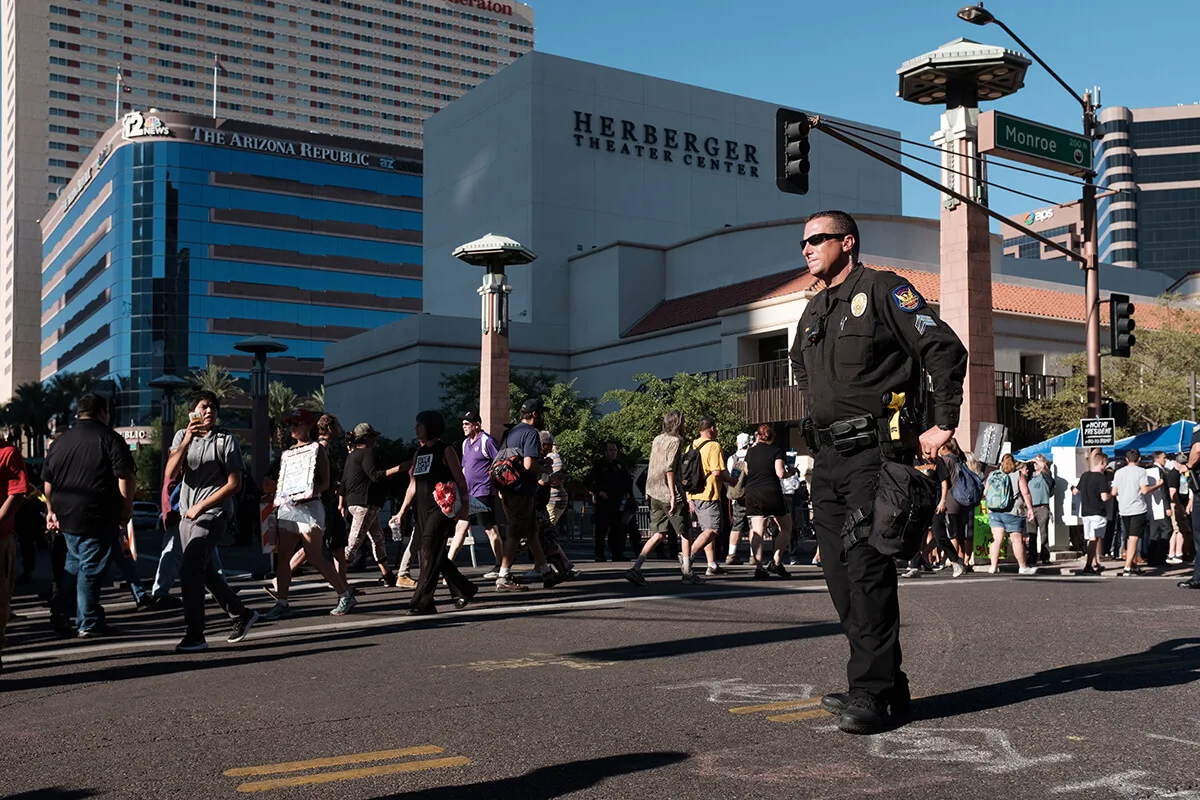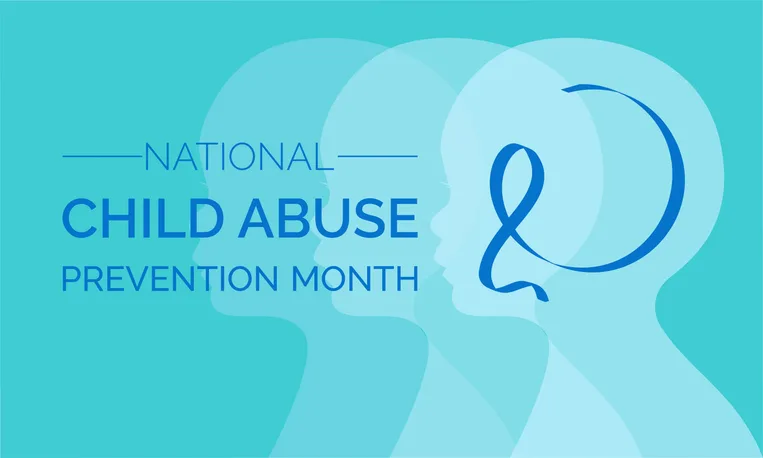
“We’re asking for more funding to the community programs and the social service agencies that ultimately improve quality of life.”
*This is part two in a series exploring Arizona’s movements to defund police departments. Read the full series here.
Defunding the police doesn’t always mean eliminating police departments entirely, but rather dismantling some of the systems on which they were built.
“I think a more accurate phrase, term or a definition would be the reallocation of funding from police departments,” said Kevin Robinson, who was assistant chief for 13 of his 36 years with Phoenix police.
Phoenix activist Chris Love said redirecting part of the funds for police departments to other programs makes sense.
“We’re really talking about taking those resources and reallocating them to things like behavioral health, any kind of social services, really taking a look at our education system and putting those funds into place so that we can address the issues that police are always called to address anyway,” she said.
Critics say defunding police would negatively affect cities, and they argue the current system protects citizens. Defunding or disbanding law enforcement agencies may be too radical and a concept more imaginary than realistic, said José Borrajero, a political activist and member of the Arizona Latino Republican Association.
RELATED: Activists Call for Phoenix to Defund Police, Give More Money to Oversight Amid Protests
“We’re addressing the wrong issue here,” he said. “The issue is not of the police being good or bad, the issue is not whether the police should get money or not, the issue is that there are a few rotten apples within the police department. If you’re going down the road and speeding, should everybody be pulled over because one person was speeding? No, you pick out the person that was speeding and then give them the ticket.”
DiCiccio echoed that sentiment in a June meeting of the Phoenix City Council.
“We’ve heard this constant attack on our police,” he told the council. “ They’re violent, they’re this, they’re that. No, they’re not. They are good people. These are individuals that have protected us. They’re doing everything they can, they have families, they have children, they go to church on Sundays, they do everything right in their life and they have to endure this kind of stuff, I think it’s just horrifying.”
Some questions arise whether defunding the police makes it harder for them to protect residents.
“You have to ask yourself the question: Who is going to investigate homicides? Fatal car accidents, armed robberies, assaults?” Robinson asked. “There’s a litany of things, obviously, that the police do, so without a police department, you have to ask yourself, ‘Who’s going to do that?’”
Alondra Cano, a city councilmember in Minneapolis, Minnesota, said defunding the police is an issue of equity. In June, the Minneapolis City Council unanimously voted to disband the police department and vowed to create a “transformative new model.”
“As a lawmaker, the fact is that when I review the budget, there’s something wrong when we’re spending more on our prisons than we are on our three state universities combined,” he said. “We’re asking for more funding to the community programs and the social service agencies that ultimately improve quality of life, education funding, housing opportunity and making sure that folks have food on the table.”
Where the money could go
Love said affordable housing, unemployment, rampant homelessness, mental health and education are some of the main areas that require additional funding.
Arizona has the eighth worst high school graduation rate in the nation, with only 79.5% of students receiving a diploma, compared with the national average of 84.1%, according to USA Today. At the same time, Arizona spends $8,131 per pupil per year on its public schools, the second lowest in the nation, it said.
“We need to know that this system in Arizona especially needs an education overhaul, It’s one of the worst educations in this entire nation,” said Perry Christian, 27, who works with the W.E. Rising Project. “For there to be so much money into policing, then to have the worst education, where’s the balance?”
Robinson said those calling for the reallocation of police funds need to “look at ways to refund those moneys or repurpose those moneys and relocate them to some social service program, mental health programs, something that would then help everybody.”
A 2018 study by the U.S Police Foundation showed that 95% of Phoenix police officers had completed mental health crisis-intervention training. However, when community members were asked how the department responded, “44.8% indicated the officer(s) made the situation worse, and 50.9% responded that when the PPD took them to jail, the officer(s) did not offer mental health assistance, and/or did not ask mental health questions before taking them to jail.”
“We have to understand that police departments have become the answer to all of our society ills,” Robinson said, “and it’s not a bad thing. But we have to understand that police officers are not necessarily trained, at least not trained well enough to deal with somebody who may have a mental illness.”
Bulk of city budgets
City governments have increasingly directed a major portion of annual budgets to law enforcement and prisons. President Lyndon Johnson launched a “war on crime” in 1965, which prioritized “law and order” and ushered in a new era of policing in America.
Police departments remain the best funded agency in most U.S cities, “with up to 20% to 45% of discretionary funds allocated to the violent system,” according to a June report by the Center for Popular Democracy, Law for Black Lives and the Black Youth Project.
In 35 of the 50 largest U.S. cities, police spending usually accounts for the largest share of the budget, according to a review by 24/7 Wall St., which notes that tracking funding can be difficult because cities budget differently. For example, Phoenix, the nation’s fifth largest city, does not oversee K through 12 schools, while New York has significant oversight of public education dollars.
New York spends more on education and social services, but the police budget for fiscal 2021 is $6 billion, about 6% of the city’s total budget of $95 billion. But in a sign that the defund movement has gained significant support, the city in June cut $1 billion from that proposed budget.
In Phoenix, activists were stymied in their efforts to cut the Phoenix Police Department’s 2020-21 budget by 25%, according to azcentral.com.The story says that the approved budget includes about $745 million for the department.
Phoenix spends more on law enforcement than it spends on any other service. In fiscal 2021, the police budget is about 22% of the total budget, according to the review by 24/7 Wall St.
“We’ve seen it in LA,” Love said, “where they’re talking about defunding the police, we’ve seen it in Minneapolis, where all of this is pretty much started, we’re seeing them talk about defunding the police. We’re seeing it in New York City. There’s no reason that we shouldn’t be having the same conversation in the city of Phoenix, given our size and given our population.”
Politics

6 terrifying things that could happen if the Comstock Act is used to target abortion
Does 1873 sound like a really, really long time ago? Well, that’s because it is—but if Republicans and far-right anti-abortion activists have their...

He said what? 10 things to know about RFK Jr.
The Kennedy family has long been considered “Democratic royalty.” But Robert F. Kennedy, Jr.—son of Robert F. Kennedy, who was assassinated while...
Local News

Opinion: Strategies for Child Abuse Prevention
11 ways you can be an ally in the fight against child abuse. April is Child Abuse Prevention Month. In the United States, it is estimated that a...

Biden marks Earth Day by announcing $7 billion in solar grants
The Biden administration on Monday announced the recipients of its Solar For All Program, a $7 billion climate program that aims to lower energy...




